They Pass the Mirror Test
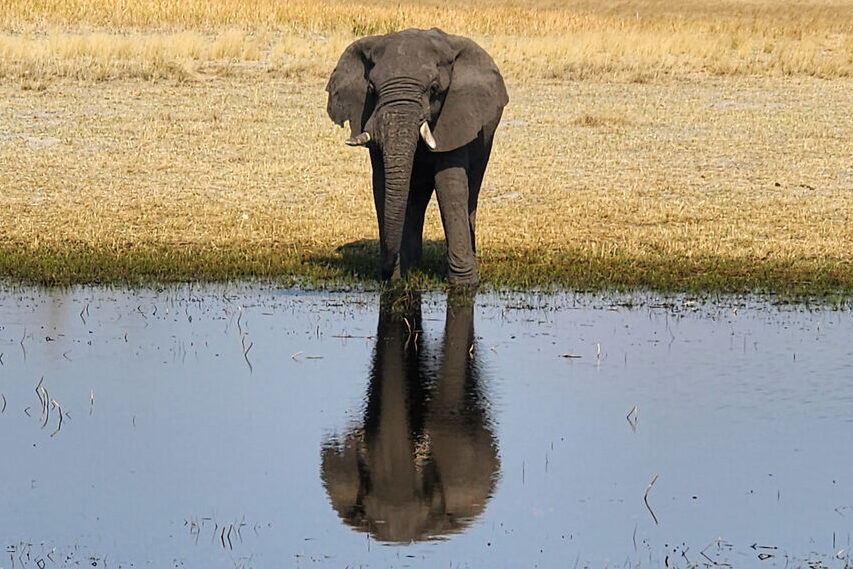
Picture this: you’re standing in front of a mirror, hair tousled, eyes half-shut, and suddenly you notice a smudge on your cheek. Naturally, you reach to wipe it off. Seems simple, right? That exact moment of self-awareness is what scientists tested with elephants—and they nailed it. In a famous experiment at the Bronx Zoo, an Asian elephant named Happy was marked with an “X” on her forehead, only visible in a mirror. What did she do? She touched the mark with her trunk, proving she recognized the reflection as herself. This is more than a party trick—it’s a rare and elite behavior that shows a mind aware of its own identity.
And that cracks open the door to something big: elephants might have a rich inner life we’re only beginning to understand. Self-awareness is the cornerstone of empathy, morality, and even complex social intelligence. It suggests they may be capable of introspection, self-image, and maybe even shame or pride. That’s more than most people credit them for. And suddenly, the elephant in the room isn’t their size—it’s how intelligent they might actually be.
They Grieve Like Us
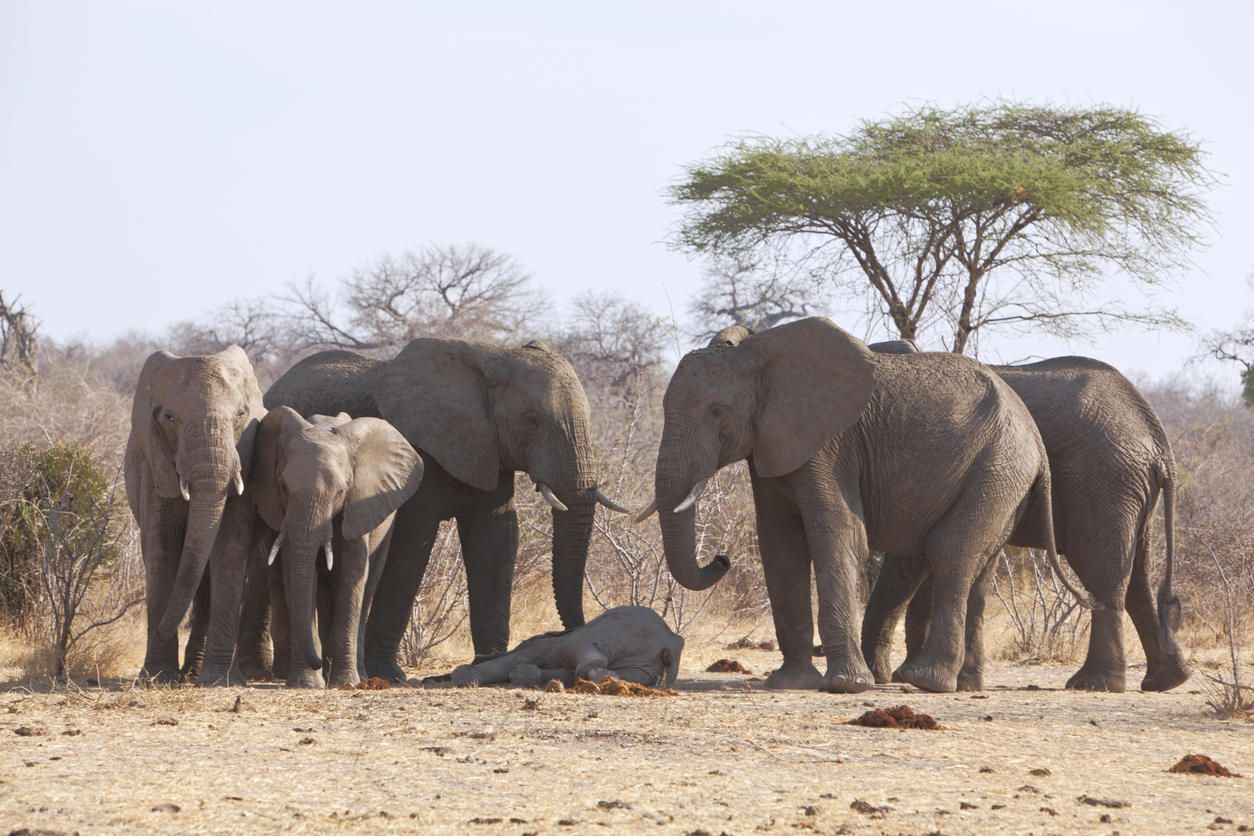
If you’ve ever lost someone and felt your heart fold in on itself, you’re not alone in that experience—elephants feel it too. When a member of their herd dies, they don’t just shrug and move on. Instead, they gather around the body, gently touching it with their trunks, sometimes staying for hours, even days. They’ve been known to return to the spot months later, almost like they’re visiting a grave. This isn’t just anecdotal—field researchers have witnessed elephants becoming visibly quiet and subdued in the presence of a fallen companion. Some even try to lift the body or cover it with leaves and branches, like a makeshift funeral rite. It’s tender, haunting, and deeply human.
The mirror test shows self-awareness; mourning suggests an awareness of others—and of the finality of loss. Elephants appear to understand death in a way that reflects empathy, maybe even a hint of spirituality. Their silence isn’t just stillness—it’s reverence. It’s grief with intention, a ritual of remembrance passed down through generations. If grief is a measure of love, elephants might just love as deeply as we do. It’s a startling mirror of our own humanity in a creature we used to think of as just big and lumbering. But wait until you see how complicated their social lives are…
They Have Best Friends
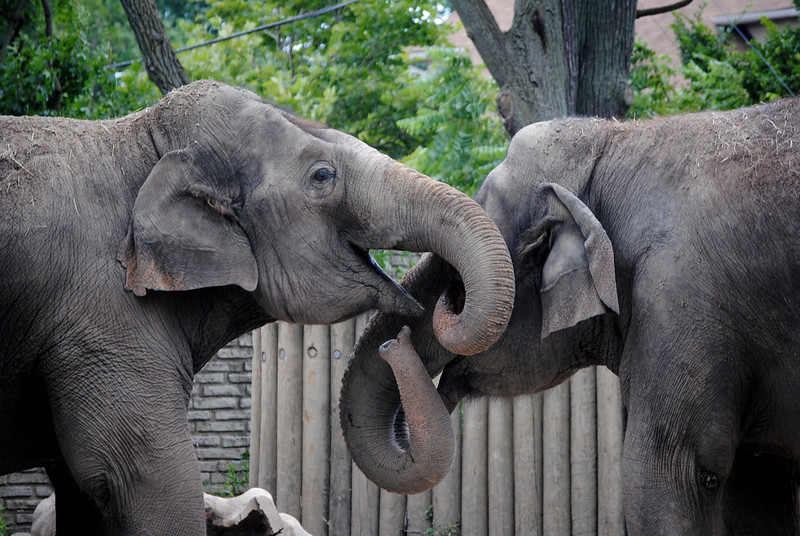
Turns out, elephants don’t just tolerate each other—they vibe, hard. Within a herd, there are cliques, besties, and yes, even frenemies. Researchers have documented incredibly tight-knit bonds between certain elephants who seem to prefer each other’s company, share food, walk side by side, and even help each other out in tough moments. And if you’re picturing a peaceful utopia, hold up—elephants also experience tension. There have been cases of elephants avoiding others they’ve had spats with, holding grudges, or outright snubbing rivals. Basically, the savannah is one giant soap opera—”The Bold and the Behemoth.” But behind the drama lies complex social intelligence, the ability to remember faces, forge alliances, and navigate herd politics.
Sound familiar? It’s like your high school cafeteria, only bigger and with more dust. These relationships aren’t shallow—they can last for years, sometimes decades. And unlike many animals that simply follow a leader, elephants engage in subtle cues, social negotiations, and compromise. They show preferences and dislikes, understanding social nuance in a way that would put some humans to shame. Emotional intelligence? They’ve got it in trunkfuls. And if their relationships are this advanced, just imagine what their memories hold.
Their Memories Are Legendary
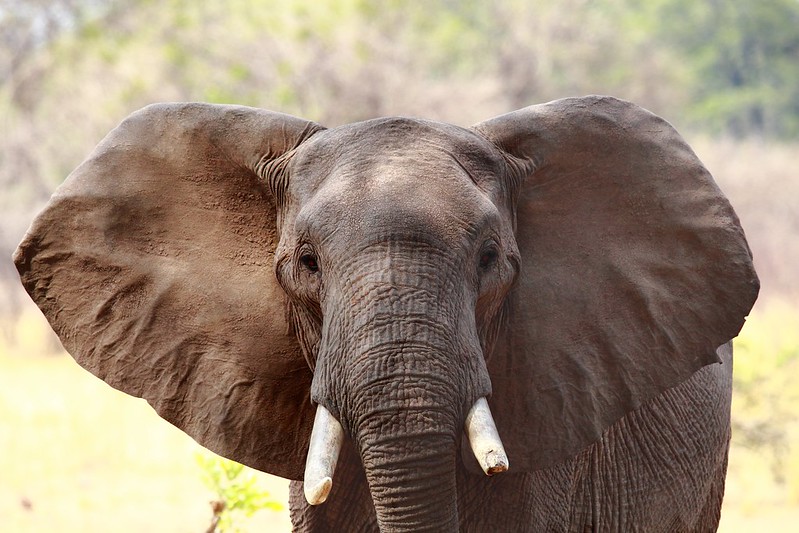
There’s a reason the phrase “an elephant never forgets” exists, and it’s not just cute trivia. Elephants have a mind-boggling memory, especially when it comes to locations, people, and life-threatening events. Matriarchs—the wise female leaders of herds—can recall water sources from decades ago, guiding their families across parched landscapes when everyone else is parched and panicking. Some elephants have even recognized humans they haven’t seen in twenty years, responding with affection—or defensiveness—depending on the past. This level of recall isn’t just impressive; it’s strategic. It helps them survive, protect each other, and make decisions that require a long view of the world. Their brains are about four times heavier than ours in sheer weight—and they know how to use them.
It’s not just about volume—it’s about value. Elephants store what matters most: safety, kin, kindness, danger. Memory allows them to remember who saved them, who hurt them, and where their ancestors once walked. It’s not data; it’s wisdom passed through time. Imagine remembering not just where your childhood home was, but the exact path your great-grandmother walked to find food. That’s the level elephants are operating on. And it’s not just survival—it’s legacy. Just wait until you find out how they engineer their world to match that intelligence.
They Use Tools
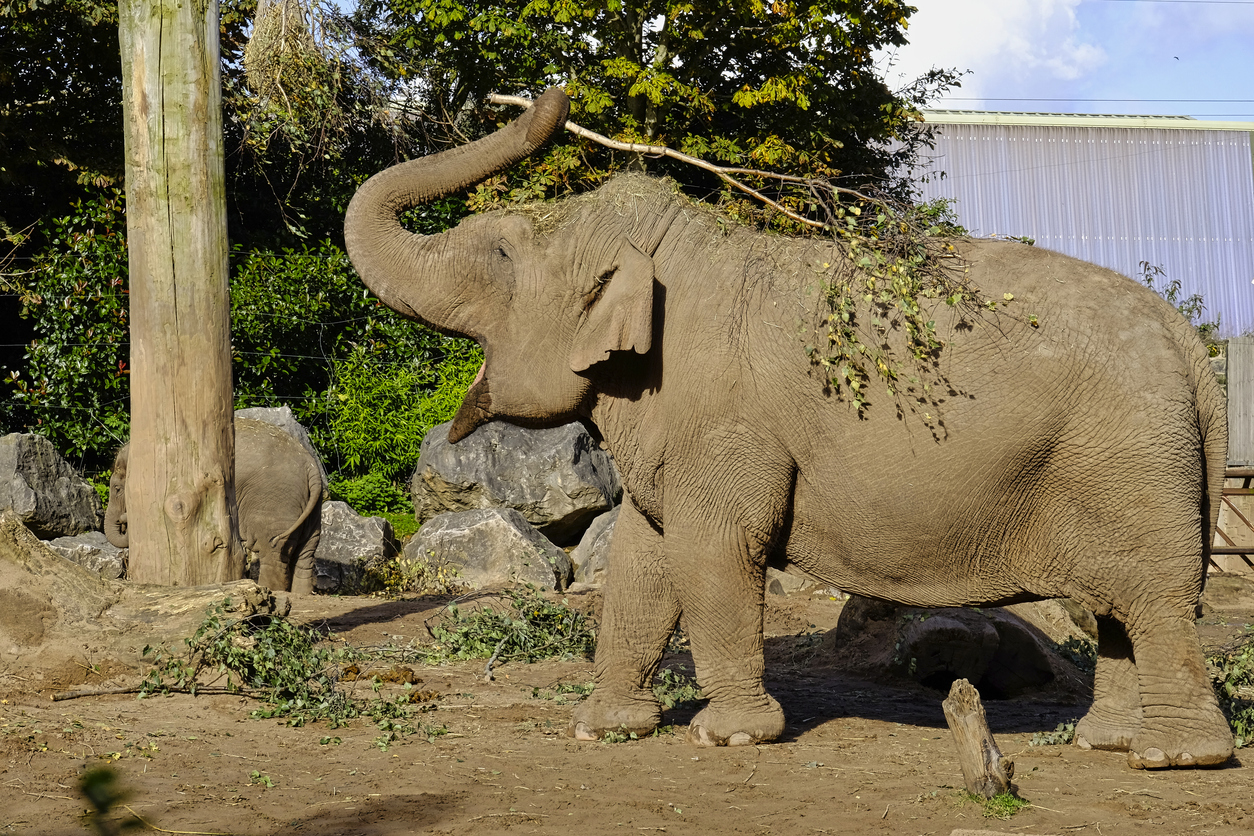
It’s one thing to be smart—it’s another to be practical. Elephants have mastered both. In the wild, they’ve been seen using sticks to scratch themselves, swatting flies with branches, or even digging water holes and covering them up to return later. That’s not luck—it’s learned behavior passed through generations. They don’t just stumble into solutions; they create them. In Kenya, an elephant was once spotted using bark to plug a leaking water container. Talk about ingenuity on the go. And the best part? They do it all without needing opposable thumbs.
Tool use in animals is rare—and using tools effectively is even rarer. It means thinking ahead, assessing needs, and adjusting the world to meet them. Elephants don’t rely solely on instinct—they solve problems. And not for show, either—it’s purely functional. When their trunks fall short, their brains step up. That’s the mark of a mind that doesn’t just respond—but reasons. It’s practical brilliance, dressed in grey.
They Comfort Each Other
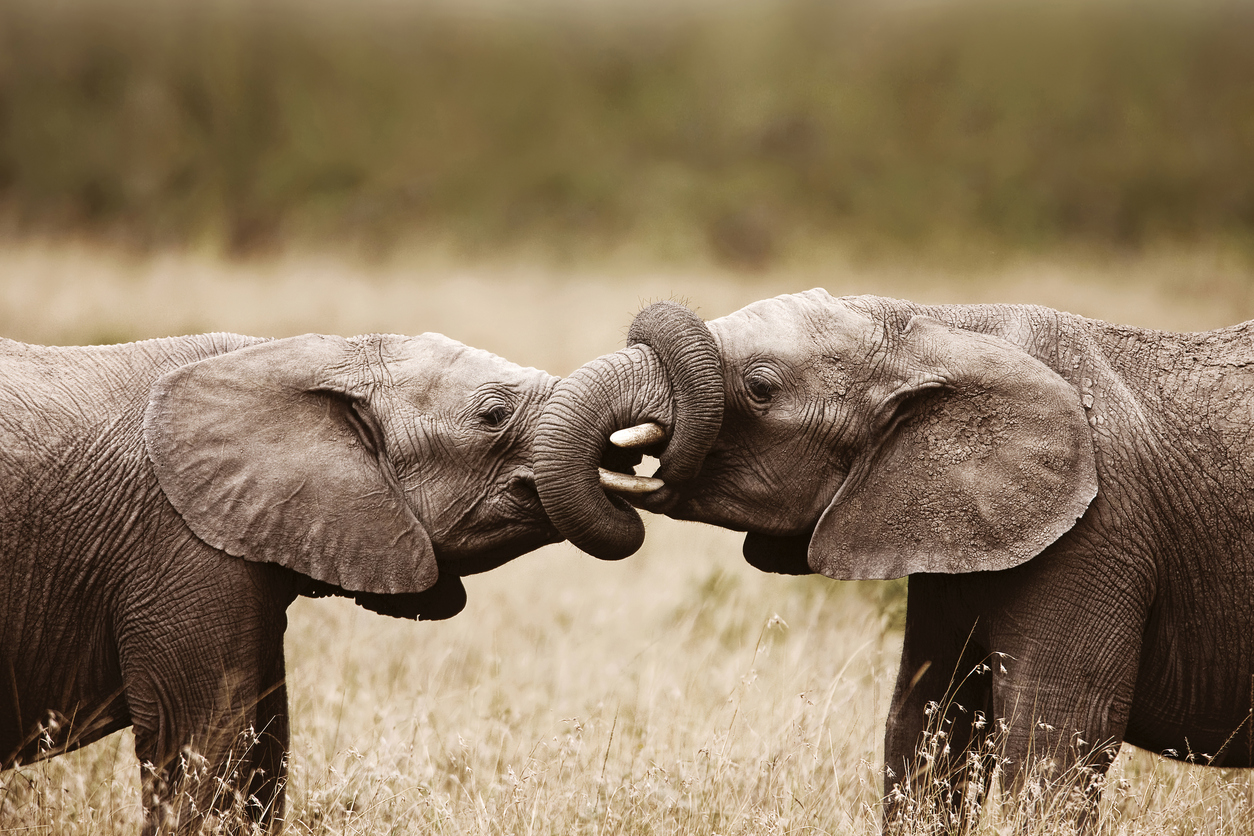
Ever had someone squeeze your hand during a tough moment? Elephants do the same—but with trunks and deep, rumbling “words” we can’t quite understand. When a calf is scared or stressed, adults often rush to touch it gently, offering physical comfort. They make low, almost song-like sounds that travel deep into the ground. These aren’t random reactions—they’re social and intentional. It’s the kind of behavior that hints at a warm, feeling heart beneath all that grey. And if you’ve ever doubted that animals feel, elephants will change your mind.
Studies show elephants actively console one another in moments of stress. That’s empathy—not instinct. They recognize distress in others and respond to it tenderly. Their social bonds aren’t just useful—they’re emotionally rich. And sometimes, the best medicine really is a gentle touch and a familiar sound. They aren’t just surviving together—they’re feeling together. In a world that rushes everything, elephants pause to care.
They “Talk” in Frequencies We Can’t Even Hear
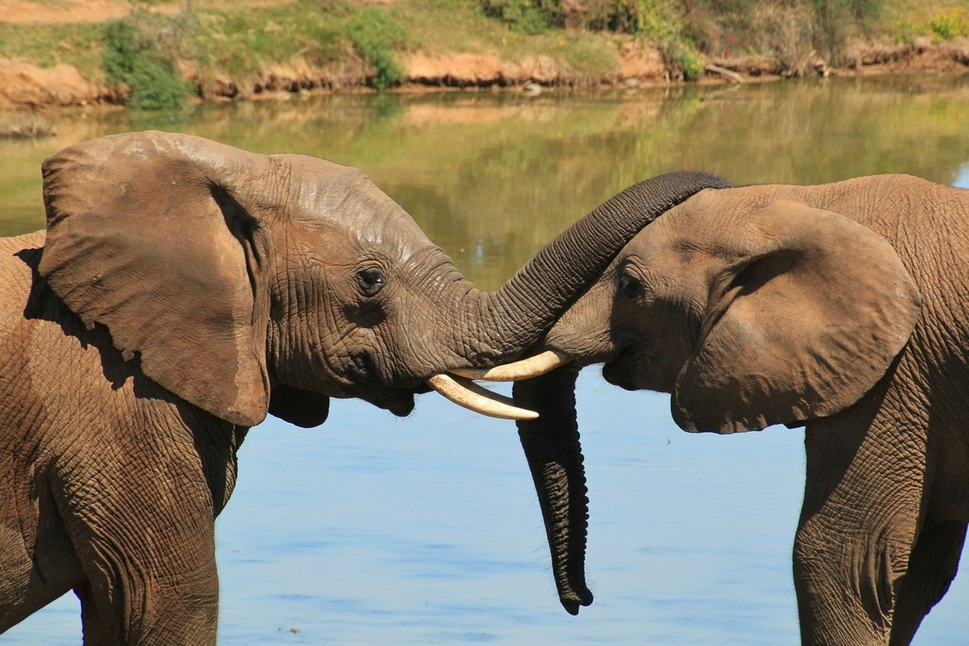
Elephants may be the best secret communicators on Earth. While we mostly hear their trumpets and roars, they’re actually having deep conversations in frequencies too low for humans to detect. These infrasound signals can travel for miles, sometimes even underground. Through these rumbles, they coordinate movements, find mates, or alert each other to danger. It’s like texting—but way cooler. And most of it happens in complete silence to the human ear. The ground beneath them becomes a message board.
This hidden language gives us a glimpse into a world of constant, complex dialogue. Their calls shape herd dynamics, mood, and relationships. It’s not noise—it’s narrative. And it shows just how layered elephant intelligence really is. They don’t just survive—they connect, even when we can’t hear it. Imagine how much we’ve missed, simply because we weren’t listening the right way. Turns out, the quietest voices can carry the loudest truths.


